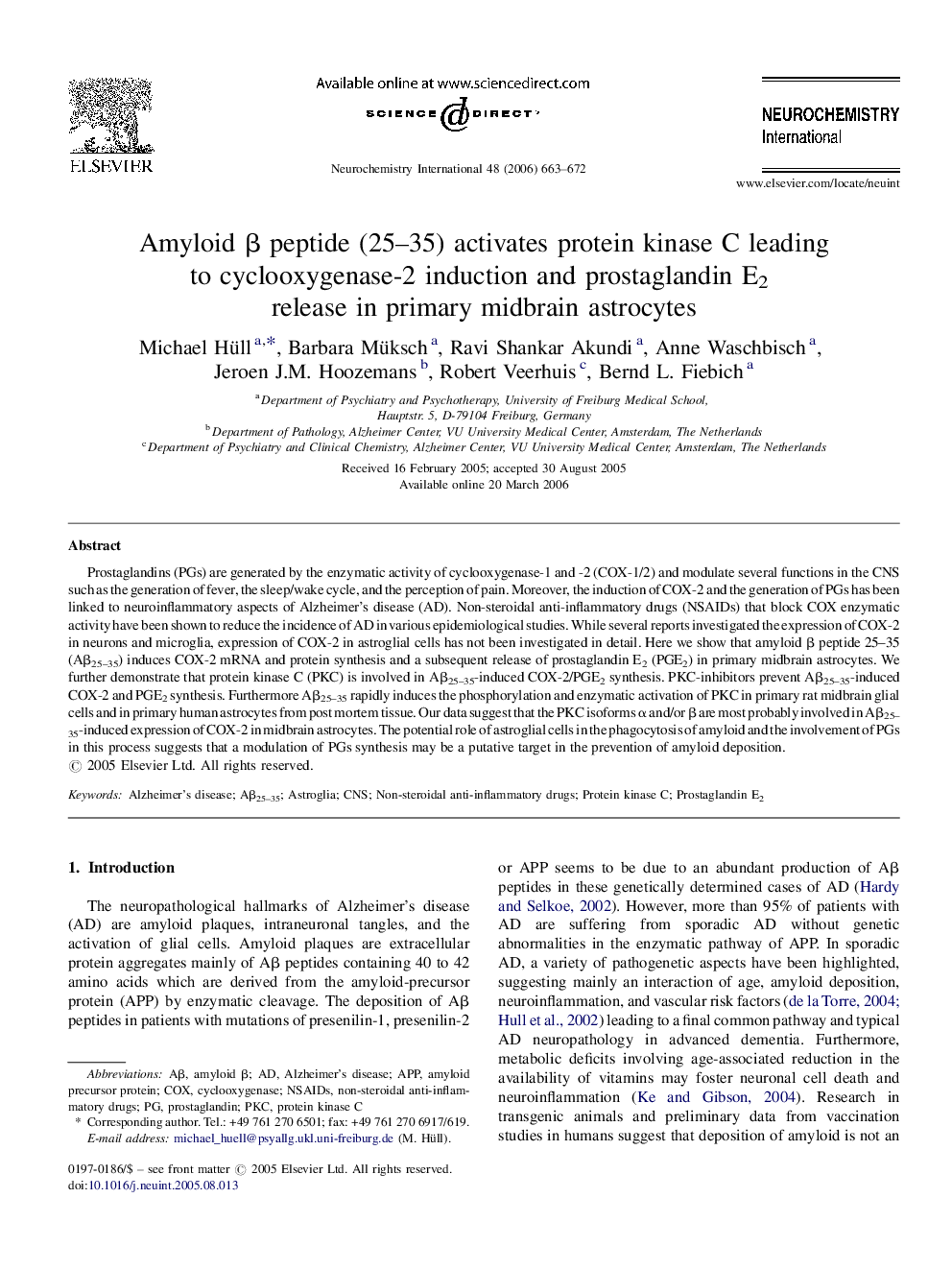| Article ID | Journal | Published Year | Pages | File Type |
|---|---|---|---|---|
| 2202310 | Neurochemistry International | 2006 | 10 Pages |
Prostaglandins (PGs) are generated by the enzymatic activity of cyclooxygenase-1 and -2 (COX-1/2) and modulate several functions in the CNS such as the generation of fever, the sleep/wake cycle, and the perception of pain. Moreover, the induction of COX-2 and the generation of PGs has been linked to neuroinflammatory aspects of Alzheimer's disease (AD). Non-steroidal anti-inflammatory drugs (NSAIDs) that block COX enzymatic activity have been shown to reduce the incidence of AD in various epidemiological studies. While several reports investigated the expression of COX-2 in neurons and microglia, expression of COX-2 in astroglial cells has not been investigated in detail. Here we show that amyloid β peptide 25–35 (Aβ25–35) induces COX-2 mRNA and protein synthesis and a subsequent release of prostaglandin E2 (PGE2) in primary midbrain astrocytes. We further demonstrate that protein kinase C (PKC) is involved in Aβ25–35-induced COX-2/PGE2 synthesis. PKC-inhibitors prevent Aβ25–35-induced COX-2 and PGE2 synthesis. Furthermore Aβ25–35 rapidly induces the phosphorylation and enzymatic activation of PKC in primary rat midbrain glial cells and in primary human astrocytes from post mortem tissue. Our data suggest that the PKC isoforms α and/or β are most probably involved in Aβ25–35-induced expression of COX-2 in midbrain astrocytes. The potential role of astroglial cells in the phagocytosis of amyloid and the involvement of PGs in this process suggests that a modulation of PGs synthesis may be a putative target in the prevention of amyloid deposition.
